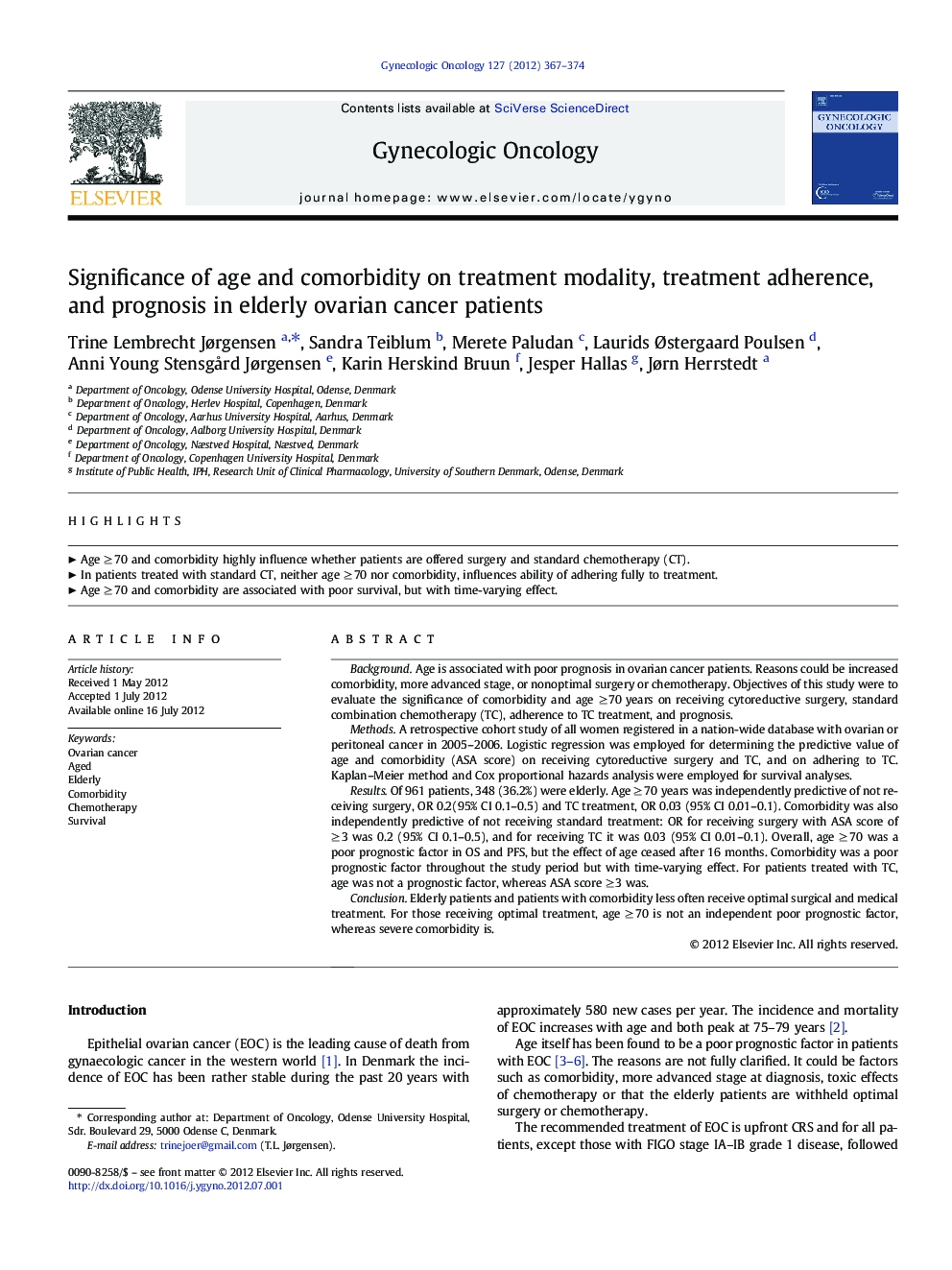| کد مقاله | کد نشریه | سال انتشار | مقاله انگلیسی | نسخه تمام متن |
|---|---|---|---|---|
| 3944931 | 1254242 | 2012 | 8 صفحه PDF | دانلود رایگان |

BackgroundAge is associated with poor prognosis in ovarian cancer patients. Reasons could be increased comorbidity, more advanced stage, or nonoptimal surgery or chemotherapy. Objectives of this study were to evaluate the significance of comorbidity and age ≥ 70 years on receiving cytoreductive surgery, standard combination chemotherapy (TC), adherence to TC treatment, and prognosis.MethodsA retrospective cohort study of all women registered in a nation-wide database with ovarian or peritoneal cancer in 2005–2006. Logistic regression was employed for determining the predictive value of age and comorbidity (ASA score) on receiving cytoreductive surgery and TC, and on adhering to TC. Kaplan–Meier method and Cox proportional hazards analysis were employed for survival analyses.ResultsOf 961 patients, 348 (36.2%) were elderly. Age ≥ 70 years was independently predictive of not receiving surgery, OR 0.2(95% CI 0.1–0.5) and TC treatment, OR 0.03 (95% CI 0.01–0.1). Comorbidity was also independently predictive of not receiving standard treatment: OR for receiving surgery with ASA score of ≥ 3 was 0.2 (95% CI 0.1–0.5), and for receiving TC it was 0.03 (95% CI 0.01–0.1). Overall, age ≥ 70 was a poor prognostic factor in OS and PFS, but the effect of age ceased after 16 months. Comorbidity was a poor prognostic factor throughout the study period but with time-varying effect. For patients treated with TC, age was not a prognostic factor, whereas ASA score ≥ 3 was.ConclusionElderly patients and patients with comorbidity less often receive optimal surgical and medical treatment. For those receiving optimal treatment, age ≥ 70 is not an independent poor prognostic factor, whereas severe comorbidity is.
► Age ≥ 70 and comorbidity highly influence whether patients are offered surgery and standard chemotherapy (CT).
► In patients treated with standard CT, neither age ≥ 70 nor comorbidity, influences ability of adhering fully to treatment.
► Age ≥ 70 and comorbidity are associated with poor survival, but with time-varying effect.
Journal: Gynecologic Oncology - Volume 127, Issue 2, November 2012, Pages 367–374